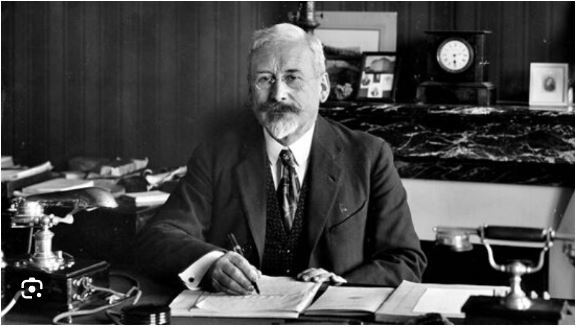Why was Charles Edouard Guillaume Awarded the Noble Prize for Physics in 1920?
Charles Edouard Guillaume: Nobel Prize for Physics in 1920
Charles Edouard Guillaume, a Swiss physicist and engineer, received the Nobel Prize in Physics in 1920. Guillaume’s remarkable achievements in the field of metrology, particularly his groundbreaking work on the development of invar and its applications, earned him this prestigious recognition. This article delves into the key reasons why Charles Édouard Guillaume was awarded the Nobel Prize for Physics in 1920.

1. Invention of Invar and its Practical Applications:
One of Guillaume’s most significant contributions to the field of physics was the invention of invar, an alloy with a low coefficient of thermal expansion. Invar, derived from the words “invariable” and “variance,” maintained its dimensions even when subjected to temperature changes. This discovery revolutionized precision engineering, as it allowed for the production of highly stable instruments and devices. The development of invar had widespread applications in various fields, including the manufacturing of precision instruments such as pendulum clocks, scientific measuring instruments, and surveying equipment.
2. Precision Measurement of Length:
Guillaume’s work was instrumental in advancing the precision measurement of length. He developed a novel device known as the “compensated pendulum” that utilized invar, along with various temperature-compensating materials. This pendulum had an exceptionally low thermal expansion coefficient, making it highly accurate in measuring time intervals. By applying his expertise in thermodynamics and mechanics, Guillaume achieved unprecedented levels of precision in length measurements, which were crucial in scientific research and industrial applications.
3. Contributions to Metrology:
Metrology, the science of measurement, owes a great debt to Charles Édouard Guillaume. His research and inventions significantly advanced the field, enabling more accurate and reliable measurements. Guillaume’s contributions to metrology extended beyond the development of invar and the compensated pendulum. He also made significant progress in improving the accuracy of standards for length, volume, and mass measurements. His work provided a solid foundation for the establishment of standardized units and laid the groundwork for future advancements in precision measurement.
4. Scientific Recognition and Legacy:
Charles Edouard Guillaume’s contributions to physics and metrology earned him both national and international acclaim. His meticulous research and inventions were widely acknowledged, and his work played a crucial role in shaping the field of precision engineering and measurement. In addition to the Nobel Prize for Physics, Guillaume received numerous honors, including the Rumford Medal from the Royal Society in London. His legacy continues to resonate in the scientific community, with his discoveries forming the basis of modern metrology and precision instruments.
Conclusion:
The Nobel Prize for Physics awarded to Charles Edouard Guillaume in 1920 was a testament to his groundbreaking contributions to the field of metrology and precision engineering. His invention of invar and the development of the compensated pendulum revolutionized the accuracy and stability of measuring instruments, impacting various scientific and industrial domains. Guillaume’s meticulous research, combined with his dedication to advancing precision measurement, cemented his place among the pioneers of metrology. His legacy endures, as his discoveries continue to underpin the accuracy and reliability of modern scientific measurements.




